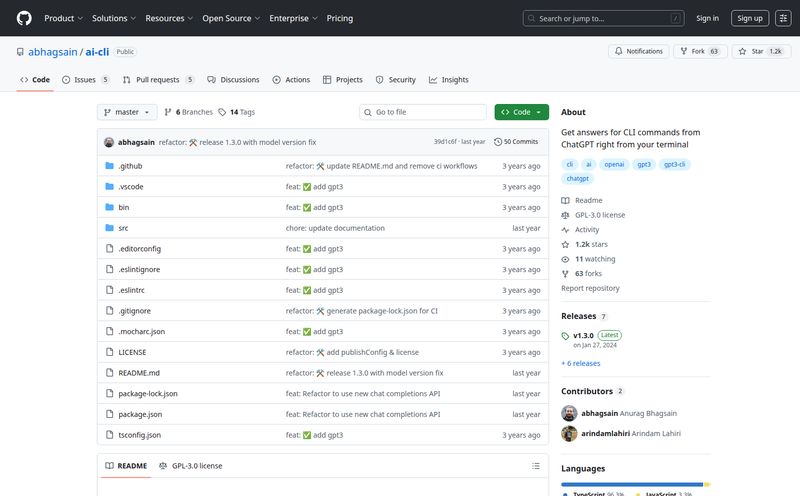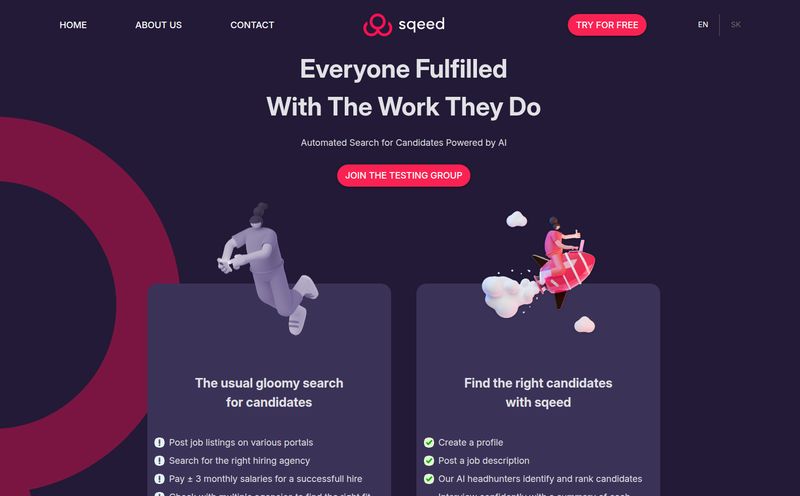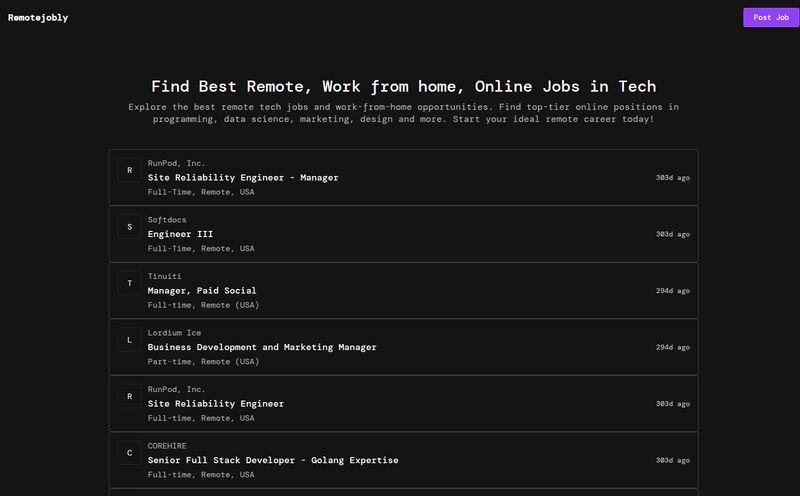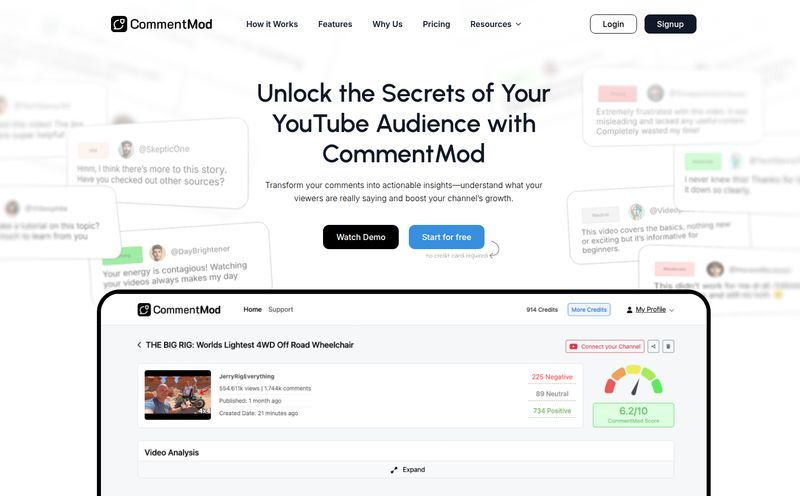Alright, let’s have a real chat. As someone who’s been swimming in the digital marketing and SEO world for years, I’ve seen more “revolutionary” learning platforms than I’ve had cups of coffee. And I drink a lot of coffee. Most of them promise the world, deliver a slightly fancier PDF, and end up as another forgotten bookmark. So when I heard about Datarango, an AI and ML learning platform wrapped in a gamified, business-first package, my professional skepticism kicked in. Hard.
But then I looked closer. And you know what? I’m intrigued. Genuinely. There’s something different bubbling under the surface here, something that might actually address the biggest complaint I hear from people trying to break into data analytics: the massive, gaping chasm between academic theory and real-world messy business problems.
So, What is Datarango, Really?
Forget the dry, robotic definitions for a second. Imagine you're training to be a pilot. You wouldn’t just read books about aeronautics, right? You’d get into a flight simulator. You’d face simulated engine failures, bad weather, and tricky landings. Datarango feels like that, but for data scientists and analysts. It’s a learning environment that drops you right into business scenarios. You're not just learning to code; you're learning to solve a marketing budget problem with code. You're not just memorizing formulas; you're figuring out how to forecast inventory for a retail company.
It’s built on the idea that context is king. Anyone can learn Python syntax from a YouTube video. But knowing which library to use when your boss dumps a chaotic sales spreadsheet on your desk and says, “find me some insights by EOD”? That’s a different beast entirely. Datarango aims to tame that beast by making the business problem the center of the universe.
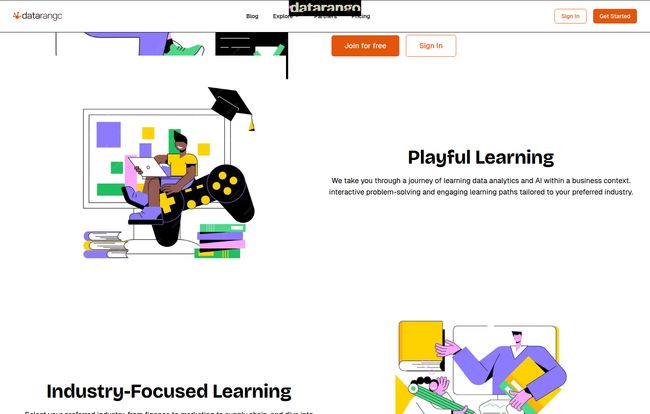
Visit Datarango
The Datarango Experience: A Deeper Look
So how does it actually feel to use it? Based on what I've gathered, the platform is built on a few core pillars that set it apart from your standard online course mill.
More Than Just Points and Badges
Okay, it has points and badges. The term is “gamification,” and let’s be honest, it can be a bit of a gimmick. But here, it seems to serve a purpose beyond just getting a gold star. The rewards—coins, badges, leaderboards—are all designed to keep you motivated through the tough spots. Learning to wrangle data can be frustrating. I've been there, staring at a screen of error messages at 2 AM. A little dopamine hit for finally solving a problem can be the very thing that stops you from rage-quitting and binging Netflix instead. Of course, this style isn't for everyone. Some people prefer a more stoic, academic approach, and that's perfectly fine. But for the rest of us who need a little push, it’s a smart psychological tool.
Learning in Your Native Industry Tongue
This, for me, is the real game-changer. Datarango boasts industry-focused learning paths. Whether you're in finance, marketing, or logistics, the problems you solve are tailored to that world. This is huge. Learning data cleaning on a generic dataset about penguins is fine, but learning it on a dataset that looks exactly like the messy customer data your future employer uses? That's invaluable. It builds not just skill, but also domain knowledge and confidence. You walk into an interview already speaking their language.
Getting Your Hands Dirty in a Real Sandbox
One of the biggest hurdles for new learners is setting up a development environment. It's a nightmare of installations, path variables, and version conflicts that can stop a learning journey before it even begins. Datarango sidesteps this with an integrated IDE (that's a code editor, for the uninitiated). You solve problems right there in the browser. This lowers the barrier to entry to practically zero. You're not fighting your tools; you're fighting the data problem, which is exactly how it should be.
A Guide in the Data Jungle
Finally, there's the promise of expert mentorship. The platform isn't just a solo mission. It connects you with industry pros who can help you when you’re stuck. This transforms it from a static course into a dynamic, supported experience. It’s the difference between having a map and having a guide who knows where the quicksand is. For a beginner, that guidance can be the most valuable feature of all.
The Good, The Bad, and The Data-Driven
No platform is perfect, and a healthy dose of critique is always necessary. What I really like is the holistic approach. It’s not just about code, it’s about problem-solving, portfolio building (with the 'Showcase Your Project' feature), and industry relevance. It’s a well-rounded package that seems genuinely designed to make someone employable.
Now, let's be real. The cons are worth considering. The platform's success for you will depend on your own consistency. You can't just log in once a month and expect results. It requires active participation. The gamified approach, as mentioned, might not resonate with more traditional learners. And you're somewhat tied to the platform's schedule for new content and updates, which might be a drawback if you want to learn a brand-new, niche library that just dropped yesterday.
| The Upsides | Potential Hurdles |
|---|---|
| Engaging and fun learning keeps you motivated. | Gamification may not appeal to all learning styles. |
| Focus on real-world business problems. | Requires consistent effort to see real benefits. |
| Expert mentorship to guide you through tough spots. | Content updates are on the platform's schedule. |
| Build a portfolio with industry-specific projects. | Pricing information is not readily available. |
The Million-Dollar Question: What's the Price?
And here we hit a snag. As of writing this, the pricing page on Datarango's website leads to a 404 error. Information about the cost isn’t public. Is it a monthly subscription like Netflix? A one-time purchase per course? A freemium model? It’s a mystery. This lack of transparency is a bit of a red flag, I wont lie. However, it could also mean they are in a beta phase, or perhaps they're revamping their pricing structure. My advice? Keep an eye on their site. If the model is right, the value proposition is certainly there.
Who Should Sign Up for Datarango?
This isn't a one-size-fits-all tool. I see it being incredibly effective for a few specific groups:
- Career Changers: If you're a marketing manager, a finance associate, or a logistics coordinator looking to pivot into a more data-heavy role within your field, this is tailor-made for you.
- Students and Recent Grads: University teaches you theory, but Datarango can give you the practical portfolio projects that employers are desperate to see.
- Aspiring Data Analysts/Scientists: For those starting from scratch, the structured, guided, and motivating environment could be the perfect launchpad.
Who is it not for? Probably very senior, highly specialized data scientists or machine learning engineers who need to learn cutting-edge academic research. This platform seems focused on building strong, practical, job-ready foundations.
My Final Verdict on Datarango
So, am I still skeptical? A little. But I'm also optimistic. Datarango appears to be genuinely trying to solve a real problem in the tech education space. It’s trying to make learning data skills less abstract and more applicable, less boring and more engaging. It’s a bold mission.
If they can nail the execution and offer a transparent, fair pricing model, I believe Datarango could become a go-to platform for the next generation of data professionals. It’s not just about learning AI and ML; it's about learning how to think with data in a business context. And in today's economy, that’s a skill worth its weight in gold.
Your Datarango Questions Answered
Is Datarango good for absolute beginners?
Yes, it seems designed with beginners in mind. The integrated IDE, gamified motivation, and expert mentorship are all features that help ease the steep learning curve associated with data science.
Can I get a job after completing a Datarango learning path?
While no platform can guarantee a job, Datarango gives you the tools to be highly competitive. By focusing on industry-specific problems and helping you build a portfolio of projects, it directly addresses what employers look for. You won't just have a certificate; you'll have proof you can do the work.
How is Datarango different from Coursera or Udemy?
The main difference is the methodology. While platforms like Coursera and Udemy are fantastic repositories of video-based courses, Datarango is an interactive learning environment. The focus is on hands-on, problem-solving in a simulated business context, which is a more active and applied way of learning.
What programming languages will I learn?
While not explicitly stated for every path, the industry standard for data analytics and machine learning is Python (with libraries like Pandas, NumPy, Scikit-learn) and SQL. It's almost certain that these form the core of the curriculum.
Is there a free trial for Datarango?
This information is not currently available on their website. The best approach would be to visit their site directly and sign up for their waitlist or newsletter to be notified of any trials, beta programs, or when pricing becomes public.
Reference and Sources
- Datarango Official Website
- Forbes: The Data Science Skills Gap Is Getting Worse. Here’s How To Bridge It
